Future of Testing in Robotic Process Automation
Category: RPA Posted:May 31, 2018 By: Alvera Anto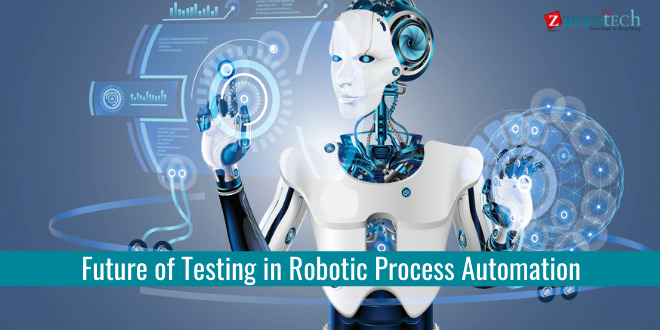
Robotic Process Automation is currently the sizzling subject in automating the business processes. RPA has changed the way of a company in which they provide their services. With RPA the users can simplify, quicken and enhance the correctness of manual, repetitive and tedious tasks. Robotic process automation is one step ahead then the automation testing tool. Well, there are numerous automation testing tools available in the market that allows the software team to create and execute the automated tests. With the help of these automated tools the testing can be carried out easily, but no other task can be performed, as they are specifically developed for testing. The RPA and software testing collectively going to enhance the critical business processes in the future. The RPA and software automation testing are somehow alike as both of them includes automation, reduction of human participation, provides fast delivery and quality assurance of the product.
The RPA tools have taken the idea of test automation to the succeeding level, which enables the folks to automate the other critical business processes such as SAP, ERP and BPO practices with a very less programming skill. The robotic automation basically refers to the automation testing, which is carried out by robots or bots. The robots imitate the human actions involving a series of repetitive steps to perform a meaningful activity without the human participation. In RPA, the robot here does not mean a physical entity, it is actually software program which is responsible to carry out various tasks. These robots have to be trained to perform a particular task which requires a strong domain and the process knowledge. The robots can be trained by means of various RPA tools available in the market such as Blue Prism, UiPath, automation anywhere. These automation tools basically utilizes a flowchart to outline a business process flow. The processes are created by just placing the control on the screen and ordering them in sequence. Once the process is created, then it can be allocated to various resources and its execution can be monitored.
Advantages of Robotic Process Automation:
The use of Robotic Process Automation in IT industry has provided several benefits to the users. The various benefits which are observed are:
1. RPA is a code free, thus it does not require to have any programming skills.
2. RPA is very user-friendly due to which it is not only accepted in IT industry, but also in different business operation.
3. The processes in RPA can be developed easily and simply by just dragging and dropping the controls on the screen.
4. As most of the manual and repetitive tasks can easily automated by using robots, the workforce size can be reduced. This also helps in eliminating the human errors and reducing the cost.
5. RPA is highly scalable and this scalability can be achieved by allocating tasks to multiple workstation.
6. When robots are used in automating the business process, it increases the accuracy of the processes and saves a lot of time.
Future of Testing:
Due to the several benefits of Robotic Process Automation, a great future of testing in RPA has been observed. Let us have a look at the graph shown below.
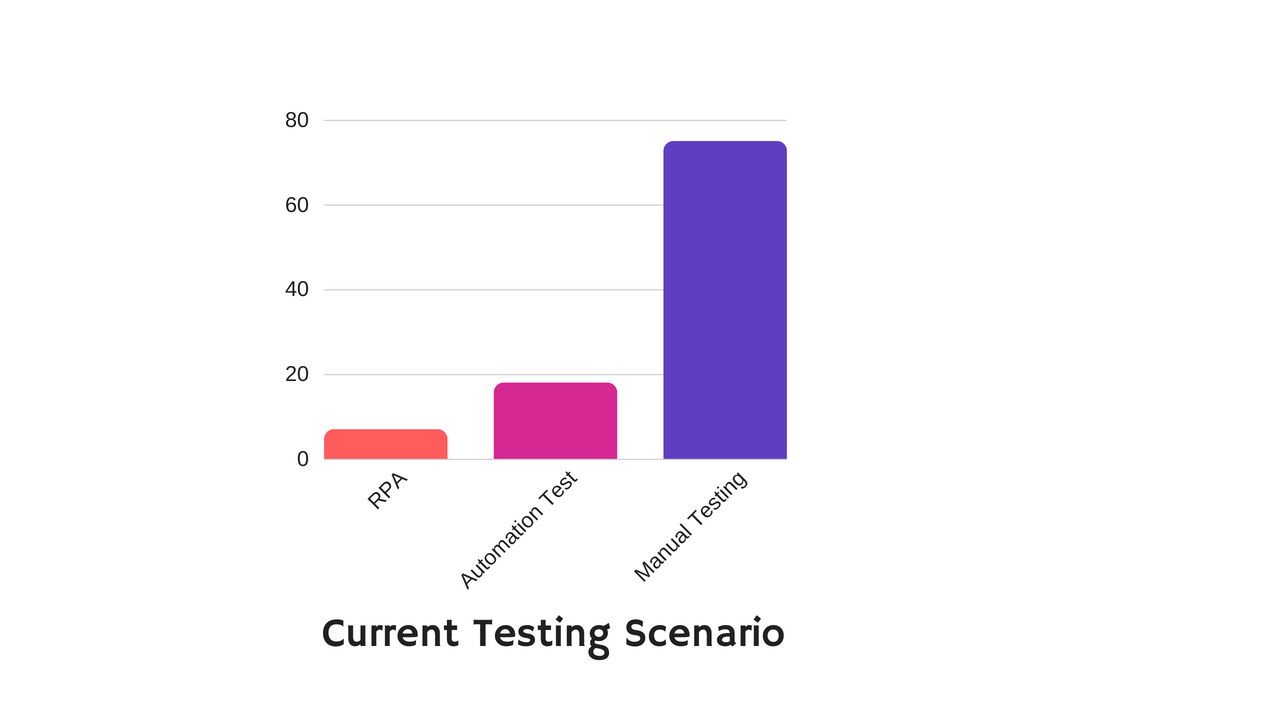
Presently, about 75 to 80% of the task are performed by the manual tester across IT industry and 20 to 30% of the repetitive task are carried out by traditional automation testing tools. There are various automated testing tools available in the market such as Selenium, QTP, Load runner, etc. About 4 to 7% of the task is performed by robots using RPA especially in BPO, finance and insurance sectors. But nowadays, RPA is becoming a more popular automation tool. Most of the repetitive tasks will get automated using RPA, but it may take some time to perform the non-repetitive task because the existing RPA software is not very well developed, it only enhances the artificial intelligence and machine learning.
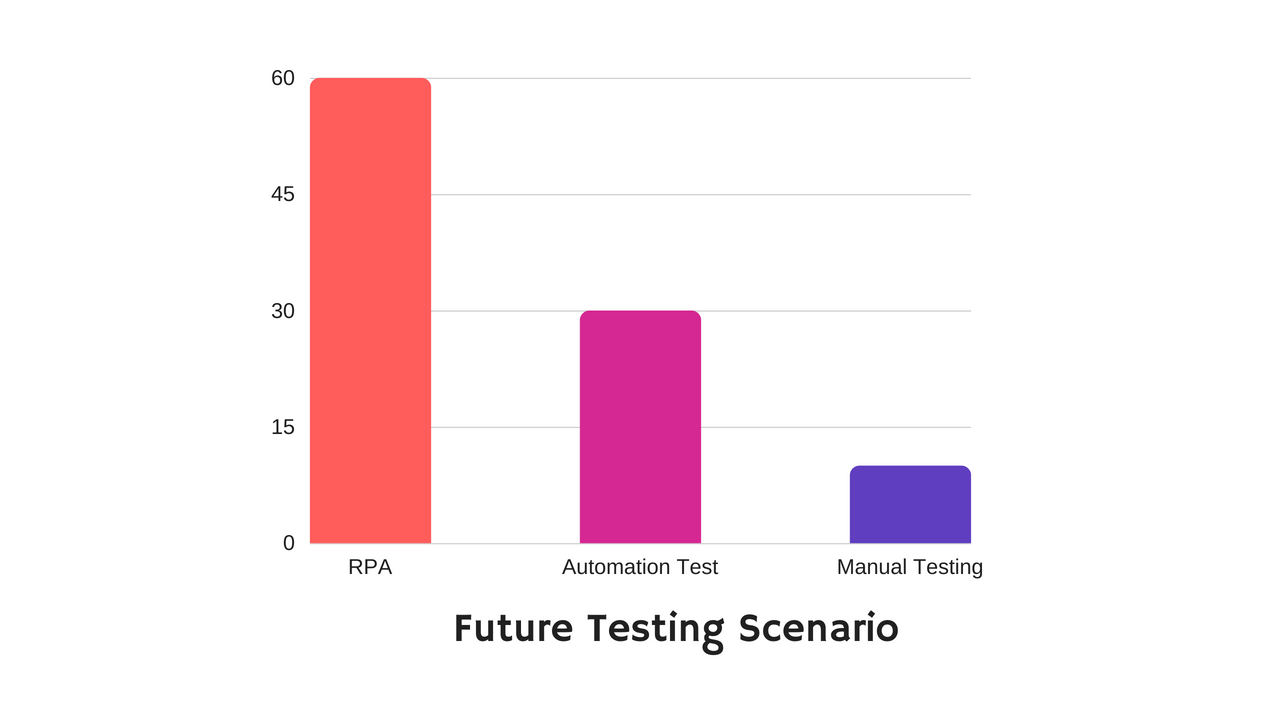
According to the data presented in the graph, in future 50 to 60 % of the testing task will be performed by RPA, 20 to 30 % of the task will be automated using traditional automation and very less percentage of the task will be taken care by the manual testers.When these graphs are compared based on the current and future scenarios, a huge reduction in manual testers is observed.
This reduction is because of the industry-wide cost pressure, time to market and accuracy. The robotic automated testing will be going to evolve slowly in most of the domain, such as education, healthcare, insurance, finance, and automotive industry. But few sectors will continue to use traditional automation or manual testing due to the following reasons:
- Incompetence to accept change.
- Company’s size.
- Lack of financial plan.
- The company has already financed in the traditional automation and most of the application has been automated.
Thus, most of the RPA opportunities exists in the areas where manual testing is still utilized and for those who want to automate the testing. RPA will rule over the IT industry because it is program independent, programming language independent in which the software is developed. The various applications such as web-based, mainframe based, desktop based, a mobile application can be easily automated using RPA. Even if the application is executing on virtual machines can also automate easily irrespective of the programming language.
The effect of RPA will range in most of the industry in the upcoming year. Nevertheless, the manual and traditional testing will also going to be used, but there would be a reduction in manual and automation testing opportunities. As most of the work is performed by robots, it is required to update our knowledge set to train the robots. Nowadays, most of the organizations are implementing RPA and it will be going to increase in the upcoming year. The RPA not only focuses on internal processes but also on the external and customer-oriented processes. This means that the effect of the RPA would be greater in the future in terms of overall business.The RPA will be integrated with other tools and technologies because it has been observed by the companies that automation tools don’t function best alone, but when they combined with other tools they function seamlessly. RPA works fine on its own, but in the future, the RPA will be used in conjunction with the process and work management tools.
The development of RPA technologies is increasing by the day of simple screen scraping and it will continue to change as how many companies approaches to perform their business activities so that the processes become streamlined. RPA is an amazing technology because of its various benefits and the comfort at which these benefits can be gained. So far, it is expected that the automation market is continuing to grow further and thus more and more advanced RPA solutions are foreseen to appear in the future. It is anticipated that the integration of RPA with more intelligent technologies will show its great potential for its extensive acceptance through all the organizations.The machine learning and the cognitive computing are the latest technologies which consist of learning about the different parts of the software further than their initial programming. These technologies can easily deal with the unexpected errors and exceptions in various business processes and the learning based on previous activities and experiences. The RPA technology is able to apply the decision and creativity to their work which will enable organizations to automate the enhanced visibility, transparency, and communication. The journey of machine learning and the growth of more intellectual technology will increase rapidly because of the automation support provided by the RPA. The computer robots are capable of automating the simple and repetitive processes and by the integration of RPA with these latest technologies, they will going to enhance their own performance and are able to make multifaceted decisions with less programming skills.
Learn RPA UiPath from Industry Experts
Conclusion:
As most of the human being tasks are going to perform by robots, RPA will going to influence the manual as well as traditional automation testing in future. RPA enables the experts to accomplish the high-end performance task from their computing systems. The robotic process automation will play an important role in the development of quality assurance and it offers industries with a chance to add extra value to their essential stability and scalability models with less investment. With RPA, it is possible to improve your testing and also it can be make more effective.
For more information please visit our website.
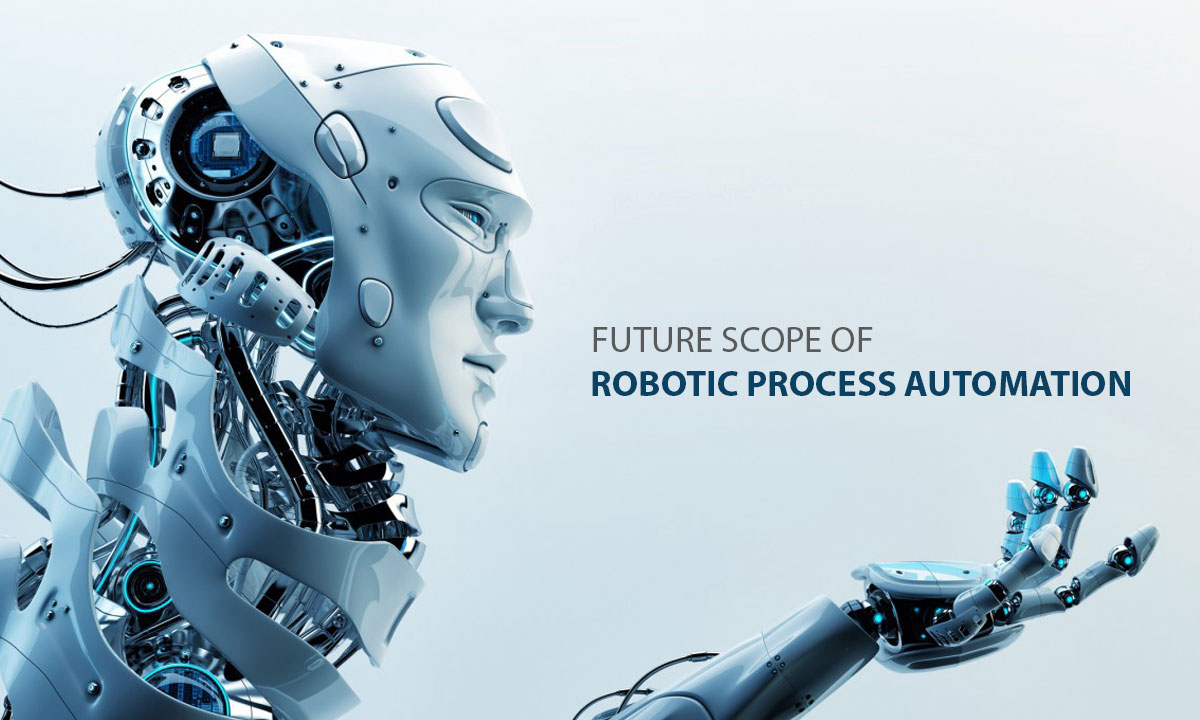

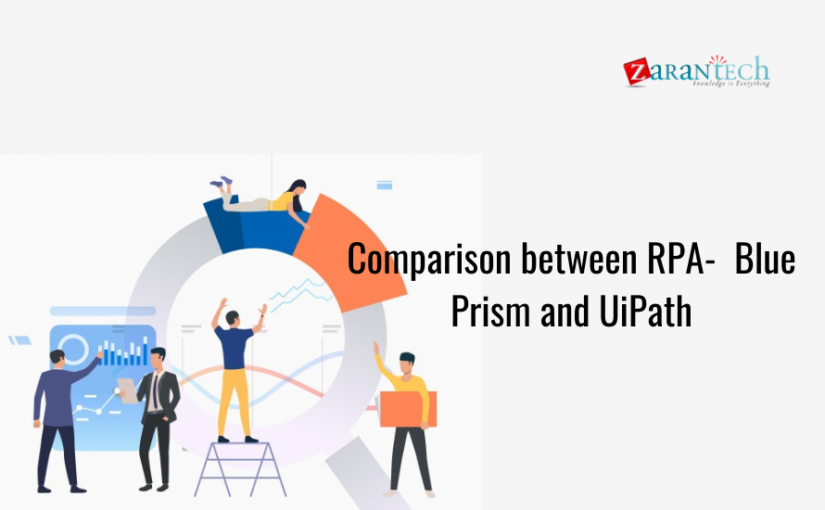


 99999999 (Toll Free)
99999999 (Toll Free)  +91 9999999
+91 9999999